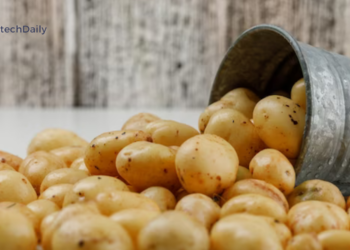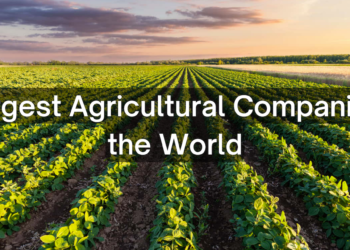Do you know where your soil comes from? If you do, then you’re probably the only one on the block who does. Most people have no clue where their soil came from or what goes into making it so loose, crumbly, and nutrient-rich. The good news is, there are ways to improve your soil without buying expensive and often overused fertilizers.
In this blog article, we will discuss 4 ways that you can improve your soils without using boring or complicated fertilizers. Improving soils involves organic matter as well as adding nutrients in the right amount and at the right time. There are many organic materials that can be utilized to add organic matter to your soils such as tree prunings, hedge trimmings, and grass cuttings.
You will read in this blog how chicken litter, wood ashes, compost tea, and even coffee grounds can be used to make great improvements to your soils.
What Is Soil?
Soil is the additional compound surrounding the roots of plants that provide them with nutrients and gives them the ability to grow. The keyword in this definition is added.
Soil is only one of the components that plants need to grow and thrive. If you take away the soil and plant in the air, the plant will still be able to grow, but it will have to create all of its own nutrients.
Once your plants have used up the nutrients in the soil, they will start to wilt, droop and eventually die. Rich, well-developed soils are essential for healthy plants. They are important for your plants to grow strong and remain healthy. Without good soil, plants will not thrive.
Too much nitrogen, for example, can cause various types of plants to grow too tall, produce flowers that are all the same color, and have no fruit. Lack of water will kill plants. If the soil is too compacted or lacks organic matter, water cannot reach the roots and the plant will wilt and die.
Add Organic Matter
By adding organic matter to your soil, you can join the billions of organisms that already live there. This process is called decomposition, and it’s the first step in returning organic matter to the soil.
These micro-organisms include bacteria and fungi that break down the organic matter into smaller compounds that are easily absorbed by your plants. Organic matter has multiple functions. It holds water, provides nutrients, and promotes soil health, soil structure, and water retention. That’s why adding organic matter is just as important for growing plants as adding nutrients.
Organic matter also affects the drainage of your soil. It acts as a sponge, holding onto water longer and releasing it slowly, rather than quickly, which prevents soil erosion. Organic matter can affect the quality of water by lowering the pH level. By adding organic matter, you can reduce that negative impact on your plants.

Use A Grower’s Fertilizer
This may sound a little odd, but you can use fertilizer granules and liquid fertilizers as organic matter. This can be very useful in areas where you don’t have the time or ability to add compost.
If you’re a busy person and simply don’t have time to compost, the next best thing is to use fertilizer. But make sure you use a slow-release fertilizer and don’t overdo it. You should not add organic matter to your soil if there is a lot of clay in your soil.
This is because the clay will absorb the organic matter and your plants will be left without nutrients. So, when adding organic matter, pay attention to the texture of your soil.
Add Nutrients At The Right Time
Just like humans, plants need water, sunlight, and soil to grow. But, unlike humans, plants do not get everything they need from air or food. They need a combination of nutrients from the soil in which they grow, called fertilizer. When plants do not have enough of these nutrients, they do not grow as healthy or fast as they should.
If you’re like many gardeners, you probably add some fertilizer to your soil every year. Although this practice is common, it’s important to add nutrients at the right time. The best time to add fertilizer is early in the growing season when the plants are actively growing.
When you add fertilizer during the growing season, it reduces the number of nutrients available to your plants when they need them most. Instead of receiving a balanced amount of nutrients, your plants receive only the nutrients that are most deficient at that specific time.
If you add fertilizer too late in the season, the fertilizer will still be available to the plants, but it will receive fewer nutrients than it would have had it been added during the growing season. Adding fertilizer too late in the season can leave your plants with inadequate nutrients, stunted growth, and even death.
Avoid Using Humus-Free Soil Mixes
The most common question I am asked is “how do I add organic matter to my soil?” Most people struggle with this because they don’t know where to start. Adding organic matter can be one of the most challenging aspects of growing food because you have to find time to make it happen.
You can’t just add organic matter to your soil whenever you feel like it. You have to plan it out. Organic matter is created by microorganisms in the soil. The more organic matter there is in the soil, the better it will be for your food. If you don’t plan to add organic matter to your soil, you are not helping your plants grow stronger and healthier.
Humus-free soil mixes are meant to be used as planting mixes, not as a way to add organic matter to your soil. These soil mixes contain very little organic matter, so they don’t add much to your soil. Most people use them to plant flowers or vegetables, not for adding organic matter to the soil.
Humus-free soil mixes aren’t really soil at all. They are mostly vermiculite, a mineral substance that looks like dark brown gunky soil. You really can’t add organic matter to vermiculite soil.

Don’t Forget To Rot Or incorporate your soil every year
There are two ways to add organic matter to your soil. You can either add raw organic matter or composted organic matter. Raw organic matter in soil that has not been turned into compost. Adding raw organic matter is like building a pile in your backyard and leaving it there.
Raw organic matter happens naturally over time. A better option is to create a pile of compost in a compost pile or in a compost bin. In a couple of months, this material will have decomposed and become a nutrient-rich substance that you can add to your soil.
Incorporating your soil every year will also help to break up clumps of soil and free up the air in your soil.
Wrapping it all up
The best way to improve your soils, or any soils for that matter, is by using all of these methods. You can add organic matter, use a grower’s fertilizer and make a pile of compost to your soils every year. This will help to build up your soil and prevent it from becoming compacted.
All of these methods are simple and easy to do but will take time and effort. Make sure you remember to add these organic materials to your soils every year, or every other year, and your soils will be much better for it. Soil is a living thing so you need to take care of it.










